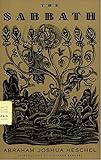 In Christ and His Righteousness, E. J. Waggoner presents the Sabbath as a help in visualizing the help that comes in the Christian life. Waggoner begins by seeing a connection between creation and redemption. He sees Creation and Redemption connected in Colossians 1:9-19. Jesus is the redeemer becuase he is the Creator. Waggoner quotes Hebrews 1:3 where it is stated that all things are held up by the Word.
In Christ and His Righteousness, E. J. Waggoner presents the Sabbath as a help in visualizing the help that comes in the Christian life. Waggoner begins by seeing a connection between creation and redemption. He sees Creation and Redemption connected in Colossians 1:9-19. Jesus is the redeemer becuase he is the Creator. Waggoner quotes Hebrews 1:3 where it is stated that all things are held up by the Word.
Waggoner then quotes ISa 40:26 and notes that Christ’s power is in fact the ability to create something out of nothing. Jesus brings strength out of weakness. Creation is an illustration of Christ being able to do this. And the Sabbath is a day to remember Christ as creator. So as the Sabbath reminds us of creation we are reminded of God’s ability to take something from nothing. As we remember that our weakness and our infirmaties become less in light of the greatness of the Creator’s power.
 Finally Waggoner quotes Romans 1:16 where the Gospel is the power unto salvation. Waggoner states, “Therefore the Gospel simply reveals to us the power which was used to bring the worlds into existence, [is] now exerted for the salvation of men. It is the same power in each case.”
Finally Waggoner quotes Romans 1:16 where the Gospel is the power unto salvation. Waggoner states, “Therefore the Gospel simply reveals to us the power which was used to bring the worlds into existence, [is] now exerted for the salvation of men. It is the same power in each case.”
Does the Sabbath remind us of God’s creative power? Can such a Sabbath remind us that that same power that created the world is now seeking to work for us and through us? Often when we speak of the Sabbath it is within the context of God giving us a much needed physical rest, but what are the spiritual ramifications of the Sabbath? Can we be more practical in our presentation of it? Was Waggoner Practical enough? Many questions and so little time. We ill come back to some of these questions eventually.

